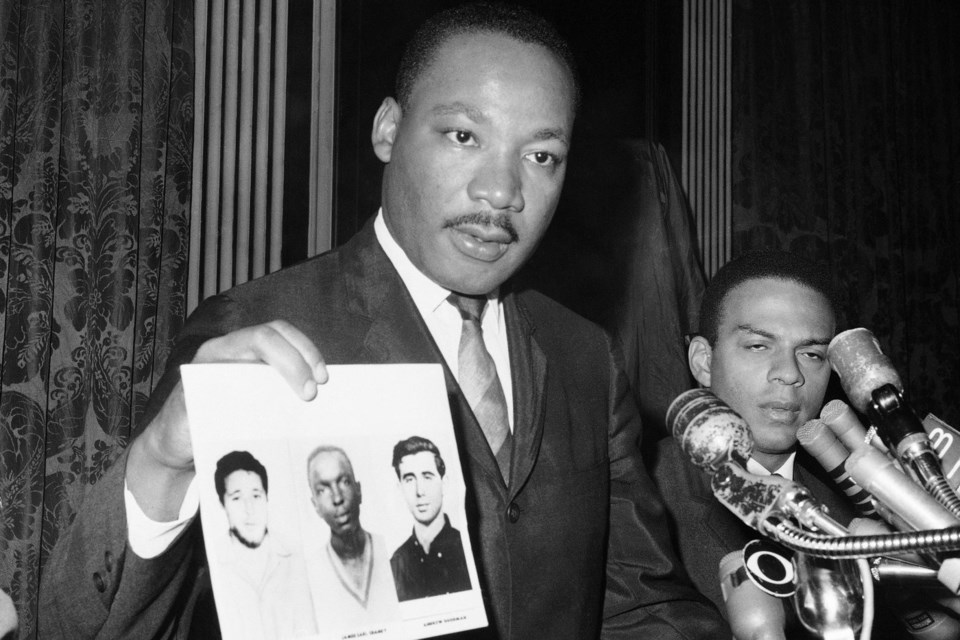WASHINGTON (AP) ā A federal judge is weighing a request from the Trump administration to unseal records of the of ā files that the civil rights leaderās relatives want to keep under wraps in the national archives.
U.S. District Judge Richard Leon in Washington, D.C., said during a hearing on Wednesday that he wants to see an inventory of the records before deciding whether the government can review them for possible release to the public.
āThis is delicate stuff,ā Leon said. āWe're going to go slowly. Little steps.ā
Justice Department attorneys have asked Leon to end a sealing order for the records nearly two years ahead of its expiration date. A department attorney said the administration is only interested in releasing files related to King's assassination.
The Southern Christian Leadership Conference, which King led, is opposed to unsealing any of the records for privacy reasons. The organizationās lawyers said Kingās relatives also want to keep the files under seal.
In 1977, a court order directed the FBI to collect records about its surveillance and monitoring of King and turn them over to the National Archives and Records Administration. The order required the records to remain under seal for 50 years ā until Jan. 31, 2027.
In January, President Donald Trump ordered Attorney General Pam Bondi to review and publicly release documents about Kingās assassination ābecause the American people have an interest in full transparency about this key historic event,ā .
āTo maximize this transparency objective, the records sealed in this case should be part of the Attorney Generalās review,ā they added.
SCLC attorneys said the FBI tried to discredit King and their organization by illegally wiretapping Kingās home, SCLC offices and hotel rooms where King met with other SCLC officials. Unsealing records of those recordings is contrary to the interests of SCLC, the King family and the public, .
āSince its inception, this case has been about government overreach,ā said SCLC attorney Sumayya Saleh.
Justice Department attorney Johnny Walker said the administration has no intention of releasing any personal communications or privileged records contained in the files.
āThankfully, I am not here to defend the allegations in the underlying complaint,ā Walker told the judge.
Nobody involved in the litigation knows what's in the archives and whether any of it relates to King's assassination.
āIt could be easy. There could be nothing, and then we just all go away,ā Walker said.
āIt's not going to happen overnight,ā the judge said. āThe court is going to move very carefully.ā
King was on April 4, 1968, while standing on the balcony of a motel in Memphis, Tennessee.
In 1976, the SCLC and Bernard Lee, who was Kingās executive assistant at the organization, filed a lawsuit to challenge the legality of the FBIās surveillance. The 1977 court order required the FBI to compile records of its telephone wiretapping operations, between 1963 and 1968, at Kingās home and at the SCLC offices in Atlanta and New York.
Bernice King, the civil rights leaderās youngest daughter, said in that she hopes the files are permanently sealed or destroyed.
āIt is unquestionable that my father was a private citizen, not an elected official, who enjoyed the right to privacy that should be afforded to all private citizens of this country,ā she said. āTo not only be unjustifiably surveilled, but to have the purported surveillance files made public would be a travesty of justice.ā
Trumpās Jan. 23 executive order also called for declassifying records about the assassinations of .
Michael Kunzelman, The Associated Press



